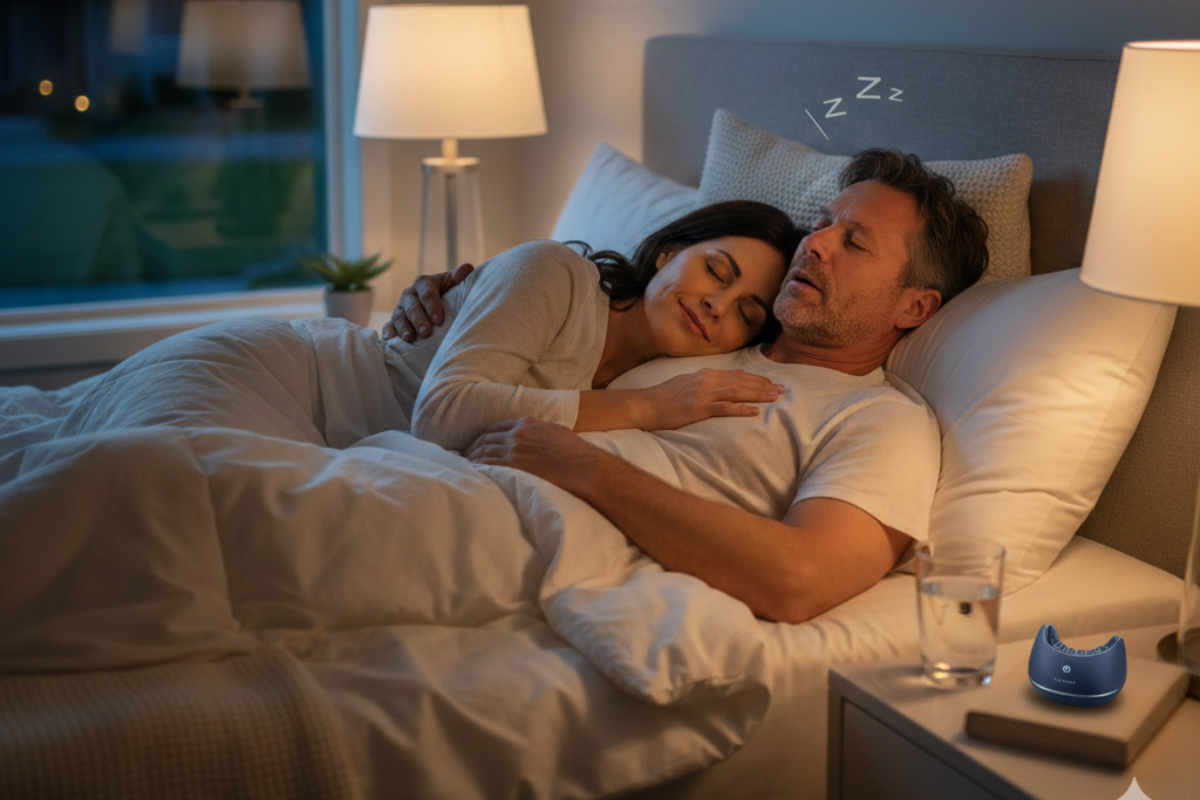Free Shipping - On Orders Over $99 (USA, Canada, UK, & AU)

What Are Blue Light Glasses and Do They Work?
August 20, 2025 3 min read
Sales of blue-light-blocking glasses have definitely increased over the years according to recent polls. Remote work, online classes, and ai research have all meant more time in front of screens for many of us— and blue light glasses look like a good solution.
But are the extra costs worth it? Or are these glasses just a gimmick?
Health authorities and medical experts mostly claim that blue light glasses aren’t necessary; however, studies do show they’re helpful in some cases. Specifically, they could help you sleep better. Keep reading to find out more about these special kinds of spectacles.
What Are Blue Light Glasses?
Blue-light-blocking glasses are a special type of protective eyewear with filters in their lenses. These filters block or absorb blue light, which is a type of short, high-energy wave light that some researchers claim can damage the eyes and disrupt sleep.
Not to be confused with computer glasses — which are prescription glasses that may include anti-glare coating and multi-focal lenses — blue light glasses are specifically designed to reduce damage caused by blue light. You’ll notice these glasses often have a barely-there amber tint.
Do Blue Light Glasses Work?
Distributors of blue light glasses claim their products reduce eye strain, prevent eye disease, and even improve sleep.
But the American Academy of Ophthalmology disagrees with claims specifically pertaining to eye health, while the American Academy of Sleep Medicine supports their use for preventing insomnia. The disagreements around them are there because the evidence is very conflicting.
A systematic review of the literature on blue-light-blocking lenses from 2017, for example, concluded there was "a lack of high-quality evidence" to support the use of these glasses for reducing eye strain, protecting eye health, and improving sleep quality. But in defense of blue-light glasses, the review looked at only three studies, all of which were of limited quality.
Still, other studies that were carried out recently even seem to agree. One double-blind study published in Work compared blue light glasses to glasses without filters on eye strain and found no difference between the two.
But where sleep is concerned, there is some evidence they do work. A study that recruited 13 undergraduates with sleep complaints found that blue light glasses improved the quality of sleep in all of the participants. Which shouldn’t be surprising given that research has long ago found that blue light, be it artificial or natural, suppresses melatonin production.
Are They Worth It?
Generally, yes. Especially if you’re planning to purchase them to improve sleep quality.
Being exposed to blue light from smartphones, computers, TVs, and LEDs several hours before bedtime can make it harder for you to fall asleep. The best way to prevent this is to avoid these triggers before bedtime. But when that’s not possible, blue light glasses can definitely help.
On the other hand, devices can be adjusted to reduce the amount of blue light they emit, i.e. set to night mode. Plus, there are blue light filters on the market for these devices as well as low blue-light bulbs, all of which are generally cheaper than blue light glasses.
At the end of the day, it boils down to personal preferences. Just like with other sleep solutions like lifestyle changes and snoring mouthpieces, blue light glasses can be one of many useful tools in improving one’s sleep.
References:
Do Blue Light Blocking Glasses Really Work? National Public Radio website. February 21, 2021. https://www.npr.org/2021/02/21/969886124/do-blue-light-blocking-glasses-really-work
Lawrenson JG, Hull CC, Downie LE. The effect of blue-light blocking spectacle lenses on visual performance, macular health and the sleep-wake cycle: a systematic review of the literature. Ophthalmic Physiol Opt. 2017;37(6):644-654. doi:10.1111/opo.12406
Rosenfield M, Li RT, Kirsch NT. A double-blind test of blue-blocking filters on symptoms of digital eye strain. Work. 2020;65(2):343-348. doi:10.3233/WOR-203086
Perez Algorta G, Van Meter A, Dubicka B, Jones S, Youngstrom E, Lobban F. Blue blocking glasses worn at night in first year higher education students with sleep complaints: a feasibility study. Pilot Feasibility Stud. 2018;4:166. Published 2018 Nov 1. doi:10.1186/s40814-018-0360-y
Amber Glasses May Provide Insomnia Relief. American Academy of Sleep Medicine. Accessed Jun 2021. https://foundation.aasm.org/amber-glasses-may-provide-insomnia-relief/
Also in Blog

Healthy Sleep Goals For 2026
December 22, 2025 6 min read

💨 Are Your Nighttime Breathing Issues Robbing You of Your Health and Your Energy?
December 12, 2025 3 min read
Breathing issues during sleep, collectively known as sleep-disordered breathing, are a major public health concern.

Is Your Snoring a Sign of Something More Serious? Unpacking the Science of Sleep
December 05, 2025 3 min read
When you snore, what's actually happening?
Join our Insiders Club
Every week you will receive specials, discounts, and giveaways.
Categories
- Better Sleep
- depression
- Fitness
- funny animal
- Global Citizenship
- health
- Mental Health
- mouthpiece
- nutrition
- pillow
- Productivity
- relationships
- sleep
- sleep apnea
- sleep deprivation
- Sleep Tech
- snoring
- snoring humor
- snoring jokes
- snoring sounds
- stop snoring
- StopSnoringStartLiving
- technology
- Tongue displacement
- travel
- video
- Young Adult

